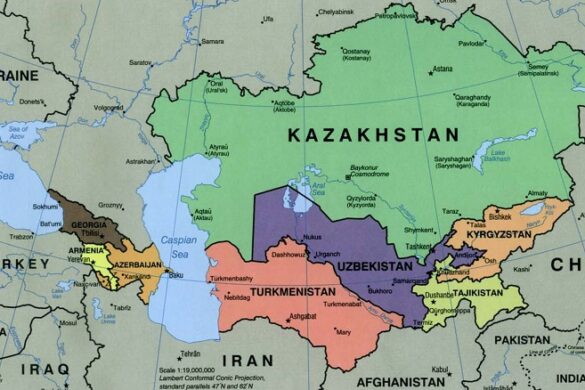
Aung San Suu Kyi Moved from Prison to House Arrest
Peace Nobel laureate Suu Kyi has been transferred from prison to house arrest in Myanmar. The military junta stated that she and other inmates were at risk of heatstroke in the detention facility.
In Myanmar, the former de facto government leader and Peace Nobel laureate, Aung San Suu Kyi, has been moved from prison to house arrest according to the military government. This move was made to prevent heatstroke, announced the spokesperson of the military government, Major General Zaw Min Tun.
Other elderly inmates were also transferred from detention to house arrest for the same reason. “The extreme heat is not only affecting Aung San Suu Kyi. We are working to protect all those who need to take necessary precautions, especially the older inmates, from heatstroke.”
Suu Kyi is 78 years old and has been in custody since the military coup over three years ago.
Civil war-like conditions in Myanmar
Myanmar has been in a state of civil war-like conditions for some time. The army is fighting on multiple fronts against a loose alliance of insurgents. Some Western countries accuse the military of atrocities, which it denies.
The army extended the state of emergency for another six months at the end of January. The military in the Southeast Asian country staged a coup on February 1, 2021, under the leadership of Min Aung Hlaing, overthrowing the democratically elected government. Thousands of people were arrested at that time, and hundreds were killed by security forces.
Suu Kyi convicted multiple times
Myanmar’s army justified the government’s dismissal by alleging electoral fraud in the November 2020 parliamentary election, where Suu Kyi’s party, the National League for Democracy (NLD), had achieved a landslide victory. Suu Kyi was arrested at that time – along with other senior politicians. In several trials, she was convicted of treason, bribery, and violations of the telecommunications law. The sentence added up to 33 years.
In some aspects, Suu Kyi was pardoned, and the prison sentence was reduced to 27 years. She denies the allegations.
The military has long justified its claim to a central role in politics by stating that only it is capable of keeping the country, with its 53 million inhabitants and numerous ethnic minorities, united.


